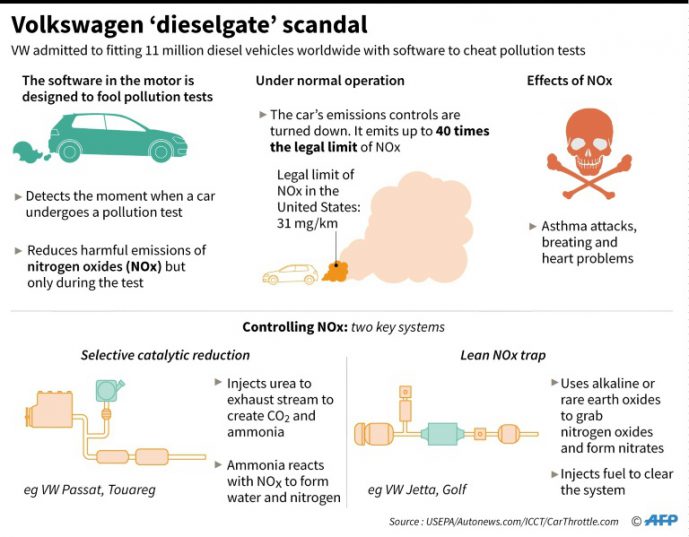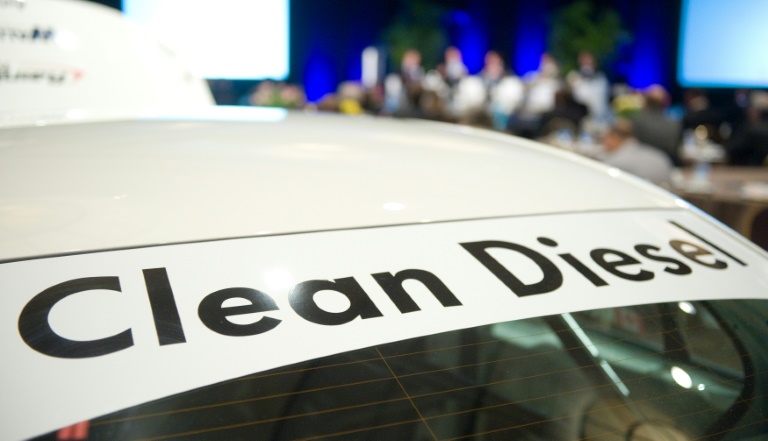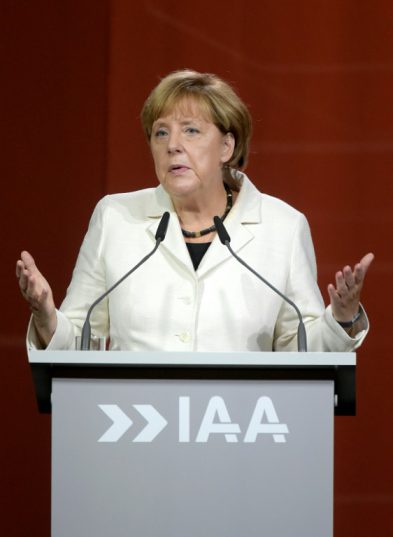Buffeted by scandals and threatened by driving bans, diesel has become the bete noire of the auto industry. But as the second anniversary of 'dieselgate' approaches, is the engine of choice for millions of European drivers really in its death throes?

“For several months now we have seen a net drop in diesel sales in the major European markets of France and Germany,” said industry expert Stefan Bratzel of Germany’s Center for Automotive Management.
In Germany, diesels now account for 37.7 percent of new car sales, down from 45 percent last year.
In France, the share of diesel-powered cars has dipped below the 50 percent-mark for the first time since 2000, to 47.8 percent.

The Volkswagen ‘dieselgate’ scandal
It was on September 18, 2015, at the height of the last Frankfurt International Motor Show (IAA), that diesel’s descent began, when US regulators revealed that Volkswagen had used cheating software to dupe emissions tests on diesel engines.
The controversy went on to engulf a slew of other car giants, shattering the myth of “clean diesel” and turning off consumers.
As the every-other-year IAA readies to open its doors again this week, uncertainty over the technology’s future is casting a shadow over the glitzy industry showcase.
– ‘Dead end’ –
“Dieselgate has driven diesel into a dead end,” Ferdinand Dudenhoeffer, director of Germany’s CAR research centre, told AFP. “It will die a slow death.”
But other experts cautioned against penning diesel’s obituary prematurely.
Tens of millions of diesel cars are currently on the roads, bought in good faith before the scandal broke out, and politicians have been at pains to stress that drivers won’t be made to pay for the industry’s misdeeds.
“You can’t expect households to replace their cars with clean energy ones from one day to the next,” said Euler Hermes analyst, Maxime Lemerle.
“Nobody stands to gain from an abrupt change.”
It’s no accident that diesel’s fall from grace has been most painful in Europe.
One of diesel’s biggest selling points, that it is more fuel-efficient than petrol, never did much to sway drivers in the United States accustomed to low fuel prices.
China, the world’s biggest car market, meanwhile has bet on the greener engines of the future, and plans to set quotas for electrified cars that would shake up the industry.
But carmakers in Europe, backed by governments desperate to tackle climate change, have for years invested heavily in diesel technology, touting it as more fuel-efficient and environmentally friendly than petrol because of its lower carbon dioxide emissions.
Yet ‘dieselgate’ has laid bare just how much the industry has resorted to skirting the rules, or outright cheating, to cover up that the technology was spewing far more toxic nitrogen oxide (NOx) than legally allowed.
NOx gases cause smog and have been linked to asthma, lung cancer and heart disease.
– Clean, at a price –

Auto makers have the technology to filter the harmful pollutants from diesel engines, but it comes at a price.
The European Commission has responded to the cheating by introducing tough new emissions tests on September 1 that will force carmakers to do a better job filtering the harmful pollutants from diesel engines — a complex feat that is technically doable, but costly.
“We know how to remove the pollution from a diesel engine, we know how to make it clean… but it comes at a price,” said Patrick Koller, chief executive of French auto equipment supplier Faurecia.
Marc Mechai, an auto analyst with Accenture in Paris, estimates it costs some “1,500 euros ($1,800) per car” to make an engine meet the most stringent regulations. “For cars under 20,000 euros, that makes the use of a diesel engine hard to justify,” he added.
Adding to diesel’s woes are countries’ efforts to clamp down on pollution to meet the targets of the Paris climate accords.
Both France and Britain have announced plans to ban the sale of new diesel and petrol cars by 2040.
China has announced similar intentions, while dozens of smog-clogged German cities and towns are mulling diesel bans.

German Chancellor Angela Merkel must walk a tightrope between expressing solidarity with duped drivers without alienating a key industrial sector that employs more than 800,000 people.
In Germany, where the diesel engine was invented, Chancellor Angela Merkel is walking a tightrope between expressing solidarity with duped drivers without alienating a sector that employs more than 800,000 people.
Ahead of inaugurating the IAA on Thursday, she praised carmakers for accelerating the push towards electrified vehicles, but urged them to keep innovating diesel technology as well, saying drivers would be relying on the internal combustion engine “for decades to come”.
“Finding the right balance will be one of the auto industry’s greatest challenges,” she said.
Support Local Journalism
Add The Citizen as a Preferred Source on Google and follow us on Google News to see more of our trusted reporting in Google News and Top Stories.






